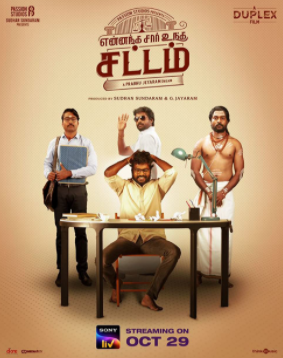Which caste are you?
- Catharinal Silvia M

- Dec 19, 2021
- 3 min read
Updated: Dec 29, 2021
Kollywood’s new take on unraveling social issues and injustices.
Before reading this article, answer the following questions.
What caste do you belong to?
Your community?
How would you define your social status (class)?
If we are aware of such stark distinctions in society, we are all accountable for the existence of social injustices and discrimination that oppress underprivileged citizens.
It might seem ludicrous to be accused of a crime that we’ve not been involved in. But imagine the tragic plight of socially underprivileged communities when they are victimised again and again even when they are innocent!
Living in the 21st century, we may feel that caste based discrimination is no longer a serious issue, but the brutal realities of this social injustice are still prevalent, and form the subject of a number of contemporary Tamil films. The pandemic has led to the OTT (Over the top) release of a number of films that attempt to make heard the ‘forgotten’ voices of our society.
The cry of the protagonist Sengeni has echoed throughout the nation, as the exploitation of the Irula community is exposed through the recent Tamil movie ‘Jai Bhim’. Sengeni’s quest for justice represents all tribal communities, while calling out the biases of the judiciary in serving justice to the underprivileged. The movie begins with a categorization of criminals entirely on the basis of their caste with the question, “நீ எந்த ஆளு?” (Which people are you?) so that Dalits can be produced as criminals by foisting false charges on them. Rajakannu, Sengeni’s husband, is termed a ‘criminal’ only because of his caste and this leads to his custodial death due to police torture. Even though a member of a marginalized community is completely innocent, the conditioned motives of caste discrimination hold him responsible for crimes and law and order problems in a village or neighbourhood. The movie ends on a hopeful note while the question of whether every victim will be represented by an attorney like Lawyer Chandru rings in the mind of the viewer.
The movie “Karnan” portrays the fight of an impoverished village that strives to survive in a hegemonic society. The film opens with a small girl dying from a seizure on the road as the buses never stop to save her. The emotionally gripping scene of the girl’s death followed by the village’s experiences of brutality, conveys the tragic fact that an underprivileged person simply does not deserve to live. The film records custodial violence and injustice to the marginalized, as S P Kannabiran (police officer, antagonist) takes the law in his hands to beat up and harass the villagers who question his autocracy. While recording the voices of the oppressed, the movie’s climax displays the persistent tenacity of the entire village that struggles to resolve injustices and establish their identity.
The recent movie ‘Ennanga Sir Unga Sattam’ (2021) encapsulates the most prevalent yet accepted issue in Indian society, namely caste-based reservation. Two stories are linked together, the first one containing commercial elements that appeal to the audience, while the second one depicts the actuality of a more serious issue. With the poignant presentation of characters struggling to get through interviews for TNPSC, the story explores caste, class and religion-based obstacles that lie in the path of most citizens of the nation when it comes to education and employment. Undoubtedly, the relevance of this issue in the plot unveils the reality of a system we take scant notice of.
When we watch such films from the comfort of our own homes we may feel put off by the brutality and bloodshed shown. But the reality is that these movies take up the cause of the underprivileged, based on true stories, rather than offering mere flights of fantasy. Tamil cinema has come a long way from “Naa oru thadava sonna nooru thadava sonna maathiri” (branded by commercialised blockbuster masala films that involve dramatic fight scenes, spicy punch dialogues, colourful romantic music and impossible rescue scenes where the extremely powerful hero saves the profoundly vulnerable heroine from the most vicious villain). Recent Kollywood films have taken a step forward in addressing the cruellest and the most ignored conflicts that prevail in the society.
Instead of raising our voice for the Western world’s problems, we are collectively responsible for addressing the cause of underprivileged sections of our society who are unable to or not allowed to lead a peaceful life. Kollywood’s approach calls for a stand against injustice as voices echo in our heads: “உட்ராதீங்க யப்போ” (Don’t you all give up!).









Comments